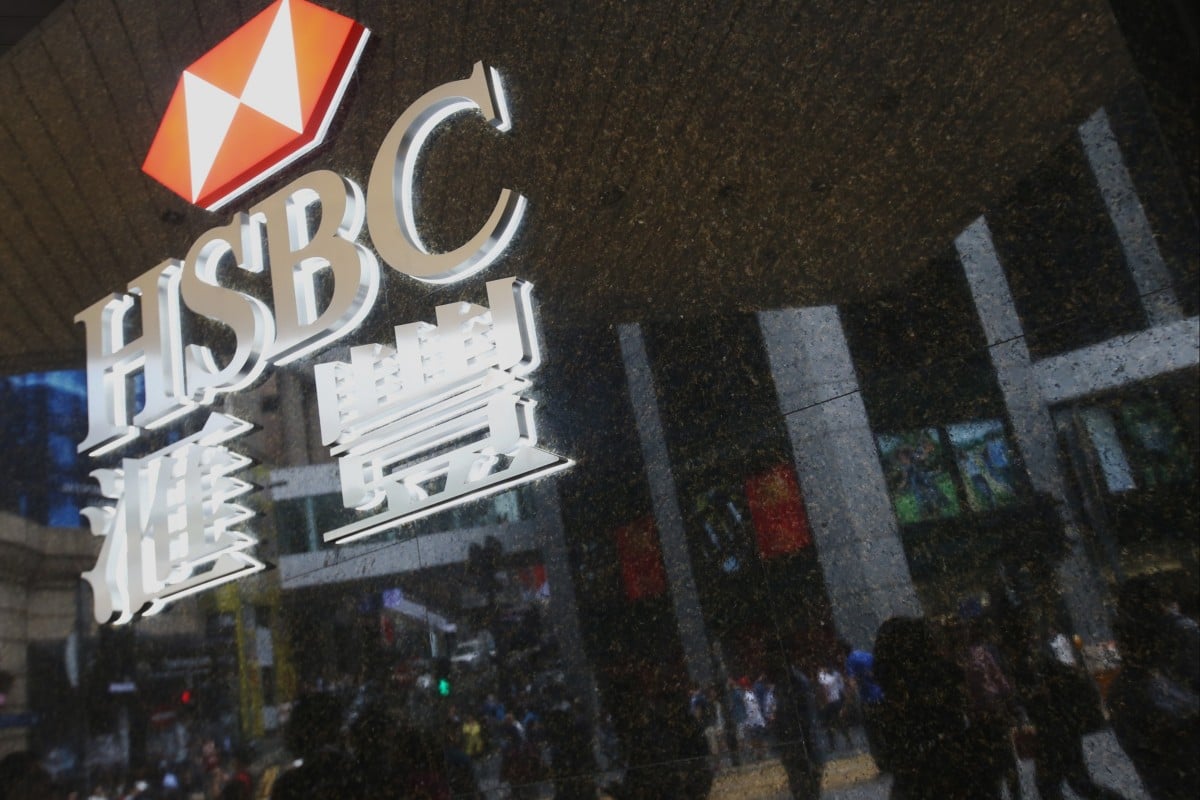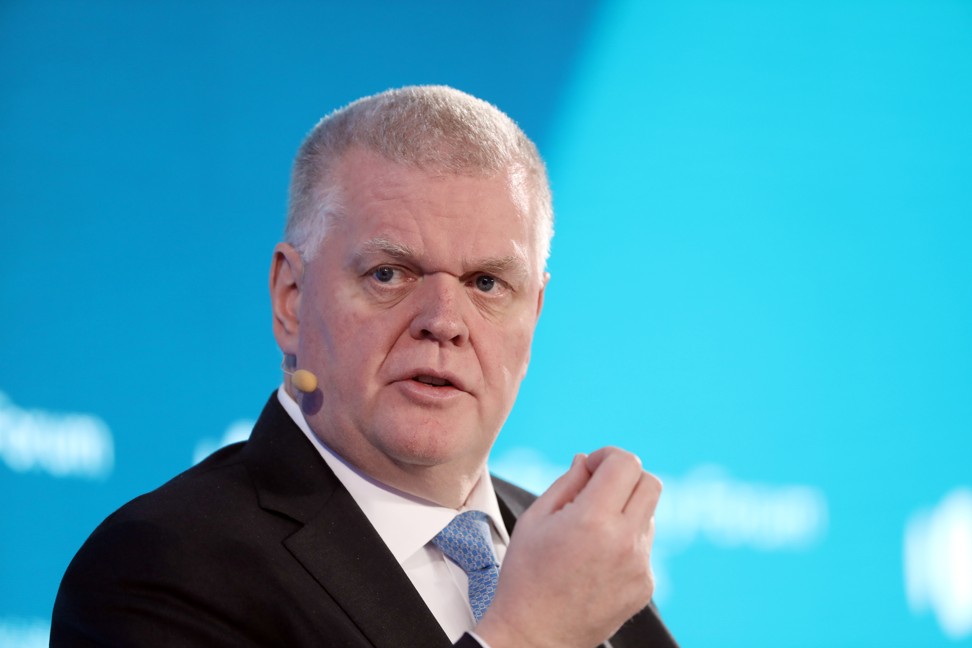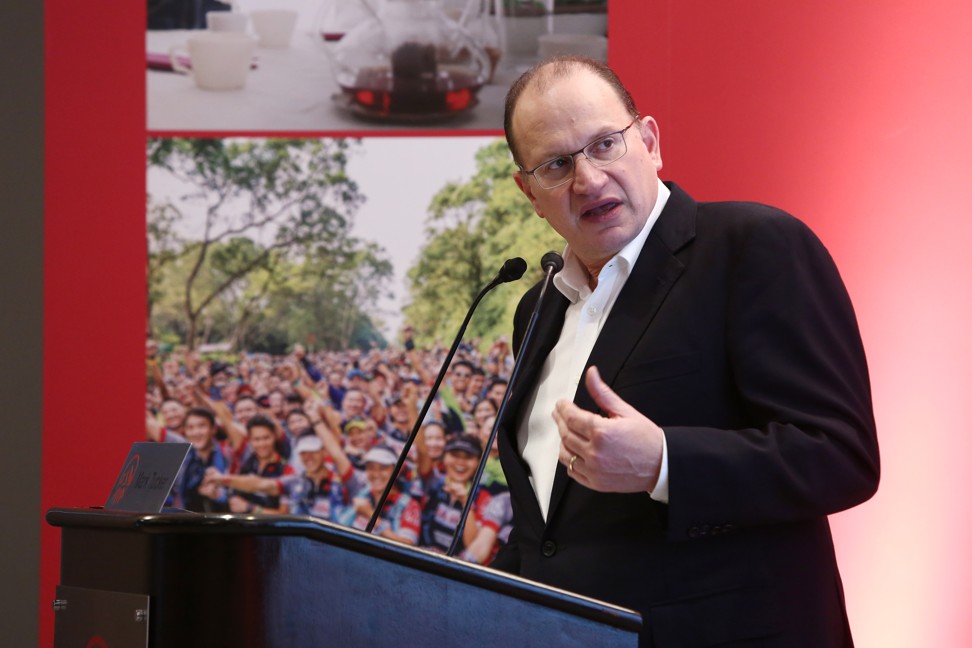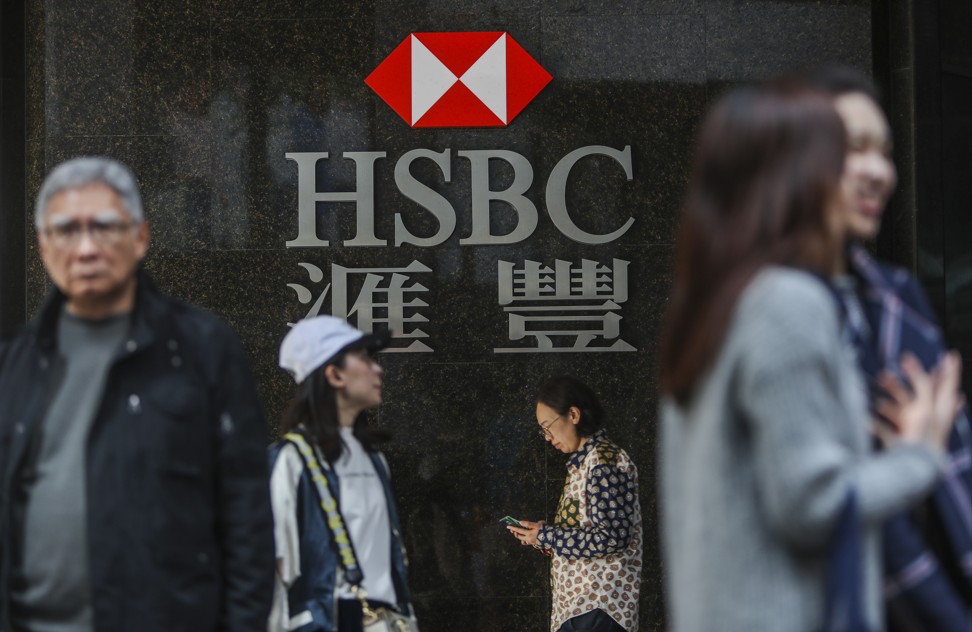
HSBC, the largest of Hong Kong’s three currency-issuing banks, plans to cut as much as 35,000 jobs, reduce costs by an additional US$4.5 billion, and shrink its investment bank in Europe and the United States, part of a broad overhaul by interim chief executive Noel Quinn to secure a permanent role in the bank’s top job.
The bank said it plans to lower its annual cost to US$31 billion or less by 2022 and expects its headcount to shrink to 200,000, representing a 15 per cent cut in its workforce. The updated strategy, which also includes several senior management changes, is the third major reorganisation in a decade for Europe’s biggest bank by assets.
HSBC, which traces its roots to Hong Kong and Shanghai during the British colonial era, said it would deploy less capital to its rates businesses, exit capital and leverage intensive product lines and reduce the size its sales and trading and equity research in Europe. It would also reduce the size of its American investment bank, particularly in fixed income, and cut its American retail branch network by about 30 per cent.
“We believe this plan is right and appropriate at this point in time,” Quinn said on a conference call with journalists. “The most important thing is that we address the underperforming parts of the business. In addressing that, we create capacity for growth elsewhere.”

Not everyone agreed it was the right course of action. Francis Lun Sheung-nim, the CEO of Hong Kong-based Geo Securities, said HSBC is a “shell of itself” and appears to be retreating from being a global bank to an Asian-focused lender.
“I don’t think what was once the biggest bank in the world should have a strategy like this. It should not be an inward-looking strategy, ” said Lun, who personally owns 400 HSBC shares. “You try to compete. You try to change with the times. You don’t go backwards.”
The latest round of cost cuts comes as Hong Kong has been clobbered by anti-government protests that started in June 2019 and a coronavirus outbreak that has sickened more than 73,000 people around the world.
Visitors stayed away from the city, with the daily average number of arrivals plunging to 3,000 in February, from almost 200,000 in the first half of 2019, adding to the woes of an economy in its first technical recession in a decade. In an unprecedented move, 50 retailers and cafes with 200 outlets in the city staged a strike in 14 shopping centres across Hong Kong to demand rent cuts.

Adding to their woes, the bottom lines of global banks have been pressured by historically low-interest rates – including negative rates in Europe.
HSBC’s adjusted pre-tax profit was US$4.3 billion during the quarter, beating a consensus estimate by Bloomberg. On a net basis, its loss, however, widened to US$5.5 billion, swinging from a US$1.5 billion profit a year earlier after factoring a goodwill impairment of US$7.3 billion associated with its investment bank and commercial unit in Europe and US$400 million in restructuring charges.
The bank’s 2019 annual pre-tax earnings fell by a third to US$13.35 billion, missing analysts’ estimates.
HSBC’s fourth-quarter revenue rose by less than 1 per cent to US$12.6 billion. Its net interest income declined slightly to US$7.65 billion, while operating expenses nearly doubled to US$17.1 billion, including the goodwill impairment.
Shares of HSBC fell 2.8 per cent to HK$57.75 in Hong Kong on Tuesday.
While cutting costs in Europe and the US, HSBC said it planned to accelerate investment in its global markets and banking business in Asia and the Middle East, while maintaining a global investment banking hub in London.
“We want to have more sector specialists, product specialists based in Hong Kong and across Asia generally so that we can truly be the leading corporate and investment bank in Asia and the Middle East,” Quinn said. “We see that as where our natural base and where our natural point of differentiation is.”
London-based HSBC earns much of its revenue in Asia. Pre-tax profit in its Hong Kong operation rose 2 per cent to US$2.61 billion in 2019 even as HSBC lowered its 2020 outlook for the Asian economy amid the coronavirus outbreak. The bank expects business to improve as most of the effects of the outbreak are felt in the first quarter.
Profit at its Hang Seng Bank subsidiary rose 2.6 per cent to HK$24.84 billion (US$3.2 billion), missing analysts’ forecasts as the lender earned less from fees, while provisions for bad debt rose amid the city’s recession.
Expected credit impairment charges rose to HK$1.84 billion last year, 84 per cent more than a year earlier. Hang Seng Bank’s shares fell 0.4 per cent to HK$163.90 on Tuesday.

The London-based bank, which generates much of its revenue in Asia, said it would suspend share buy-backs over the next two years during its restructuring.
A “different approach” was needed by the bank’s future CEO to navigate the “complex and challenging environment” the bank was facing, HSBC’s chairman Mark Tucker said in August. HSBC’s key markets in Asia face headwinds from an 18-month trade war between the United States and China, which has weighed on business sentiment.

HSBC’s search for a permanent chief executive is ongoing, the bank said, adding that it expects to conclude the search within six to 12 months of its announcement last August when Quinn stepped in as interim CEO after the departure of John Flint.
On Tuesday, Tucker said the search for a permanent CEO has been moving independently of the strategy review. “We have been determined not to stand still,” he said on a conference call. “These are changes and initiatives that are fundamentally necessary for the bank.”
Since taking over, Quinn has restructured the bank’s European management, reshuffled the management of HSBC’s banking and global markets business and named a new executive to oversee strategic execution in its US business.
On Tuesday, the bank announced additional executive changes, appointing Barry O’Byrne as chief executive of its global commercial banking business, and named Charlie Nunn as head of the newly combined wealth and personal banking business. António Simões would step down as CEO of global private banking and leave the bank later this year, HSBC said.
The environment has only got more complex since Quinn took over. HSBC is among the city’s biggest banks that have committed to provide relief to struggling consumers and small- and medium-sized enterprises, buffeted by the coronavirus outbreak, including offering interest-only mortgage payments, relief loans and waivers of certain fees.







